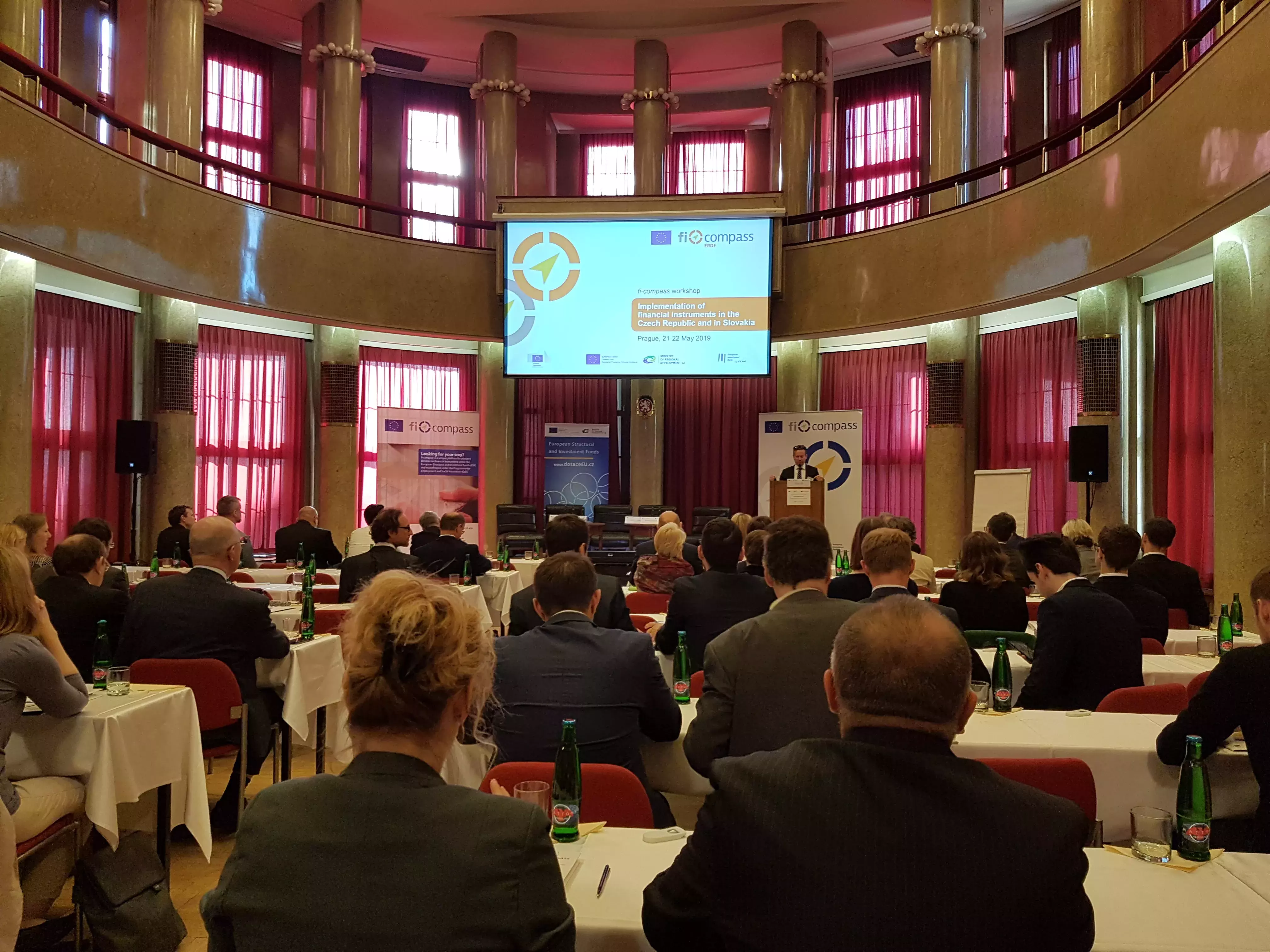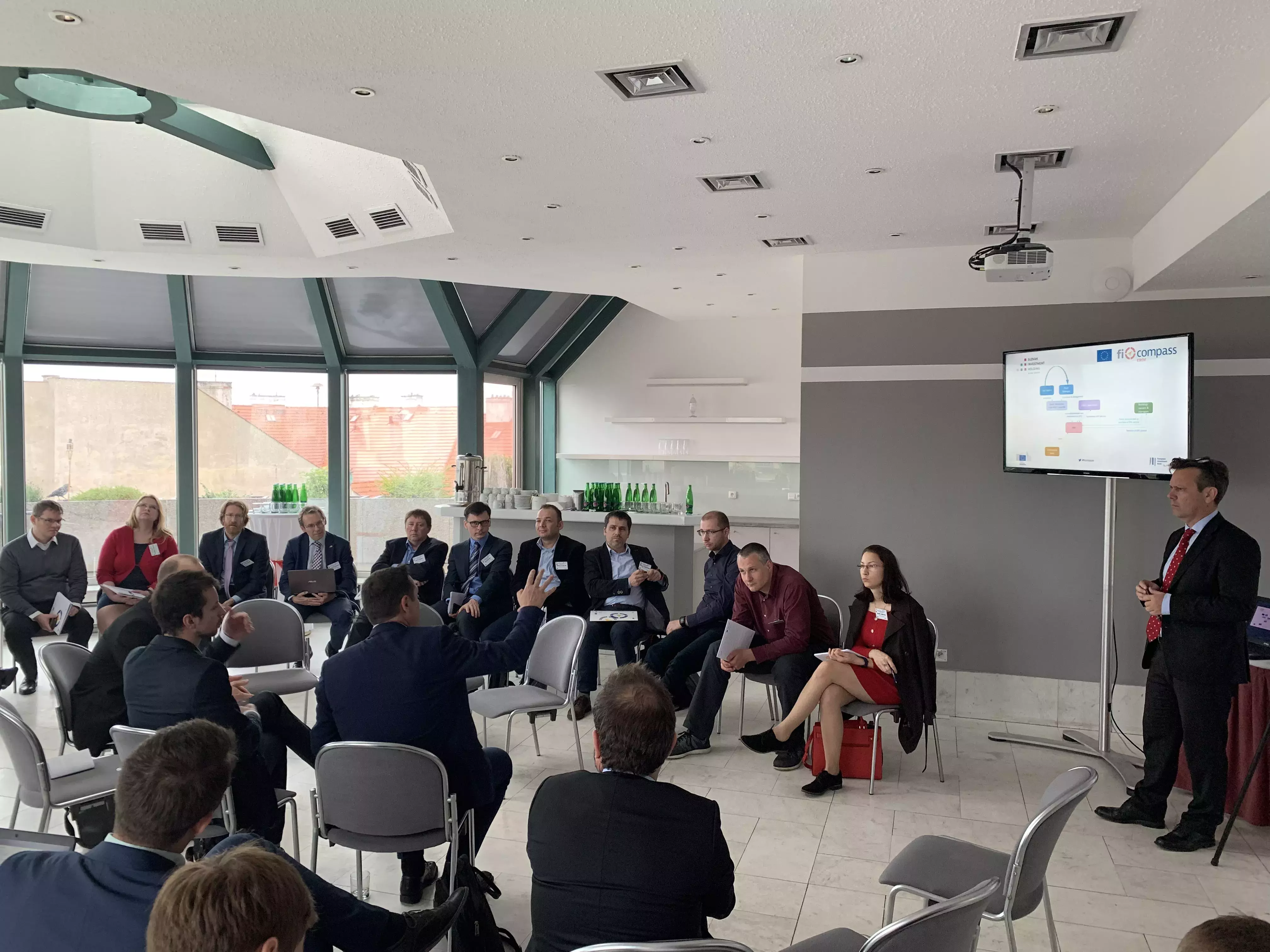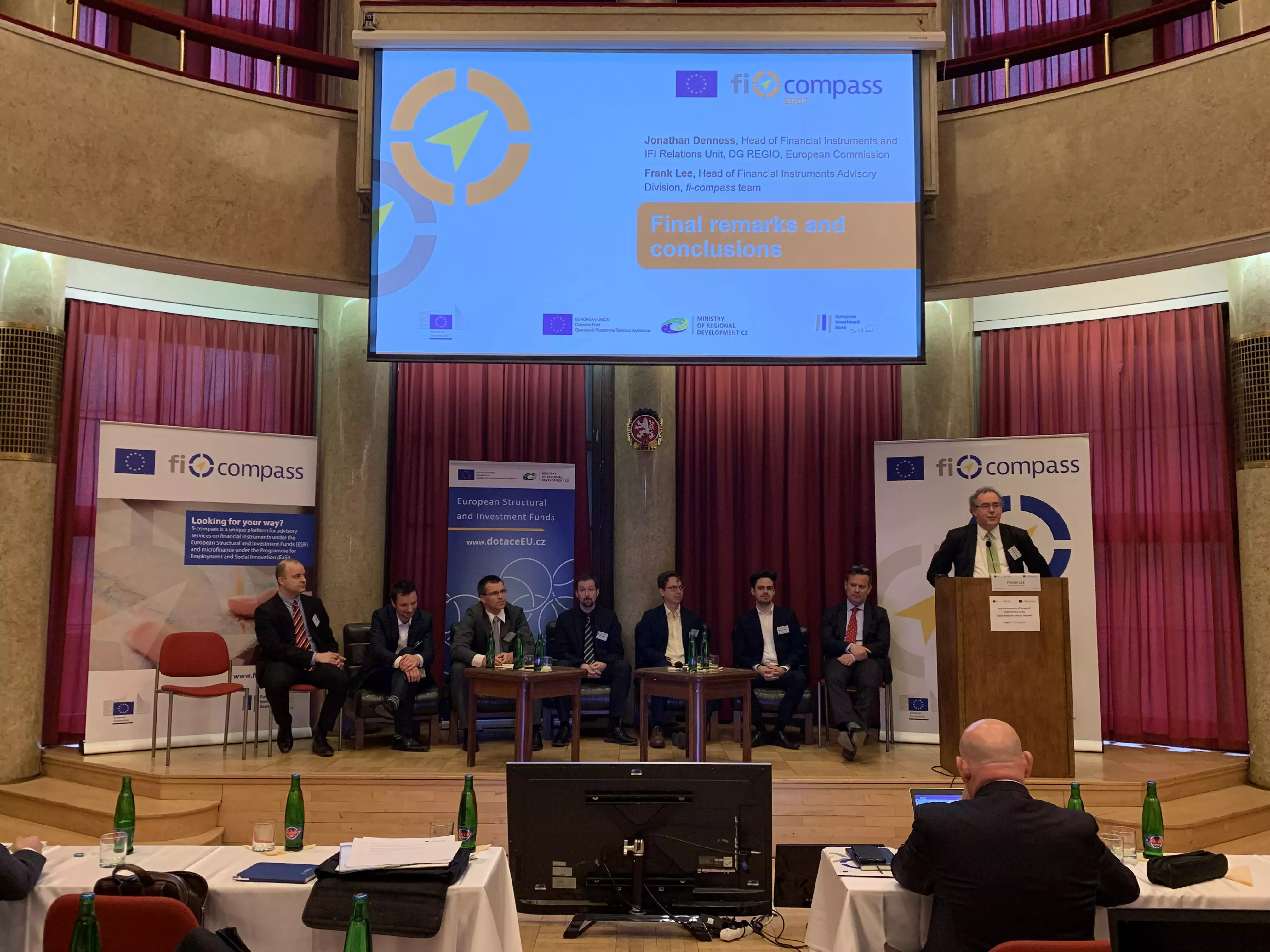Implementation of financial instruments in the Czech Republic and in Slovakia

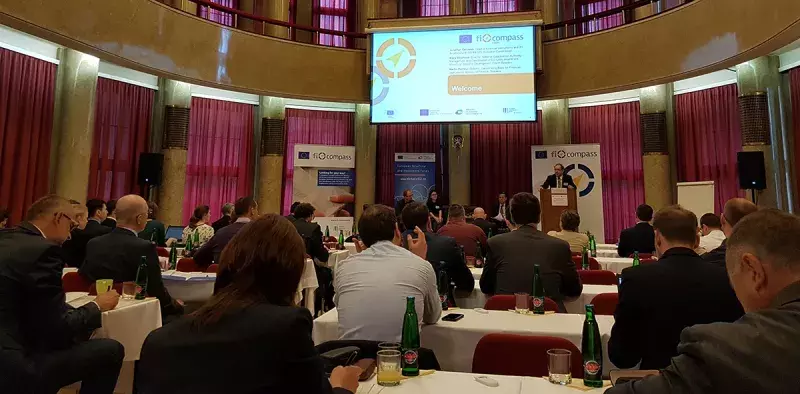
Financial instruments under the European Structural and Investment Funds (ESIF) are increasingly used in the Czech Republic and Slovakia to support the economic and social development in the two countries. To exchange experiences about such instruments, more than 80 participants met at the fi-compass workshop ‘Implementation of financial instruments in the Czech Republic and in Slovakia’ on 21 and 22 May 2019 in Prague, Czech Republic.
This fi-compass workshop was developed in cooperation with Directorate-General for Regional and Urban Policy (DG REGIO) as well as the Ministry of Regional Development of the Czech Republic and brought together managing authorities and other stakeholders involved in ESIF financial instruments in the Czech Republic and in Slovakia to discuss how such instruments can be deployed in a number of specific areas and sectors.
Day 1 – Project examples of final recipients supported through ESIF equity instruments
The workshop opened on day 1 with a presentation of examples of projects supported by ESIF financial instruments, introduced by representatives of the Czech and Slovak National Promotional Banks and Institutions (NPBIs): Vilém Řehák from the Czech-Moravian Guarantee and Development Bank (CMZRB), Czech Republic and Roman Dojčák from the Slovak Investment Holding. Exchanges between peers as well as speakers were encouraged on day 1 through get-to-know and networking opportunities.
Day 2 – Identifying key challenges and discussing solutions for specific implementation sectors
Jonathan Denness, Head of Financial Instruments and International Financial Institutions Relations Unit, DG REGIO, European Commission, Klára Droznová, Director, National Coordination Authority – Management and Coordination of EU funds department, Ministry of Regional Development, Czech Republic and Martin Polónyi, Director, Coordinating Body for Financial Instruments, Ministry of Finance, Slovakia welcomed participants on day 2, highlighting the advantages of using ESIF financial instruments, the current results in the Czech Republic and Slovakia and the plans of the two countries to deploy further financial instruments in the future.
The subsequent parallel discussion sessions provided participants from the involved authorities in both countries a platform for targeted exchanges with peers, European Commission representatives and the fi-compass team, focusing on specific implementation areas:
- Financial instruments supporting energy efficiency and EPC schemes under ESIF,
- Financial instruments for social entrepreneurship and student loans (as part of the fi-compass Capacity Building Services (CBS),
- Financial instruments supporting environment, including waste and water management,
- Financial instruments supporting energy efficiency in public and private buildings and SMEs,
- Financial instruments supporting infrastructure PPP, intermodal transport terminals, electric vehicle charging and green transport, and
- Financial instruments supporting urban development, including brownfield regeneration and social housing.
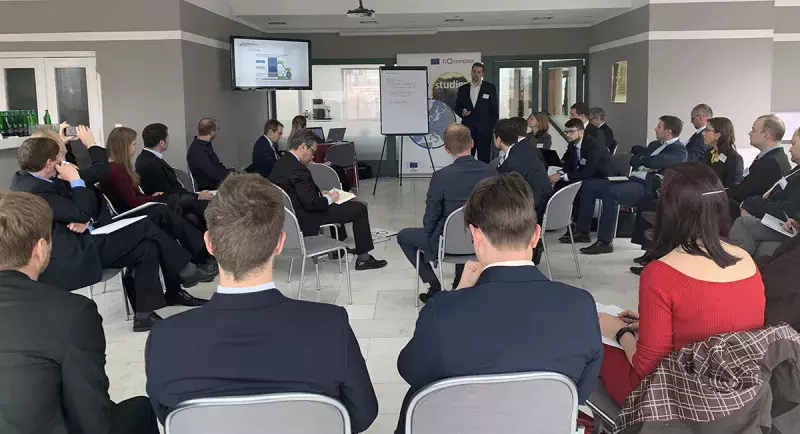
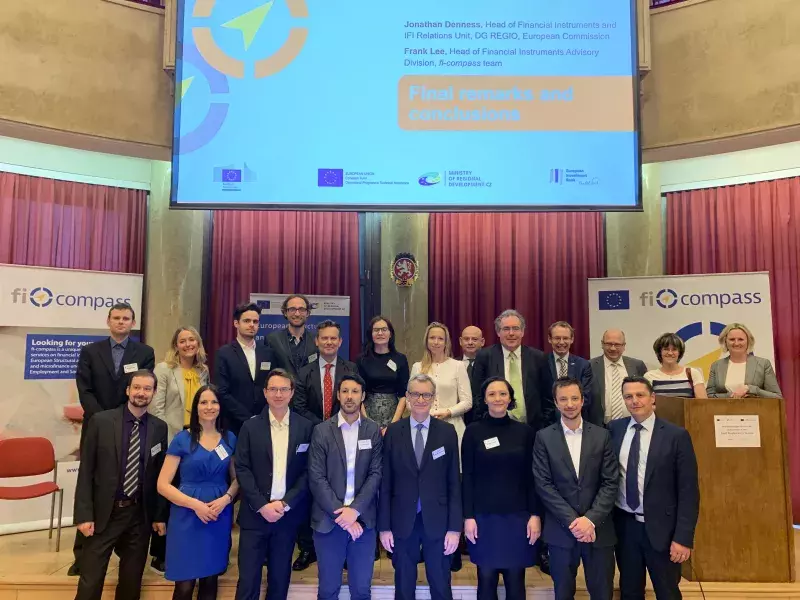
These sessions aimed at identifying key implementation challenges in these particular sectors and agreeing on possible solutions and next steps to progress with the implementation in practice. To set the scene for each discussion session, representatives from Czech Republic and Slovak authorities presented the state of play of financial instruments in these specific areas. Relevant examples from other countries were also discussed. The results of each session were presented by Czech and Slovak representatives to the full audience.
The event finished with a positive note that much can still be achieved in this programming period in both countries with ESIF financial instruments. It is important to focus on pro-active cooperation between the relevant authorities in order to successfully implement the foreseen financial instruments still in the current programming period while preparing in the same time for post-2020. Continuous awareness raising such as this fi-compass workshop helps authorities to understand why financial instruments can be in some areas more suitable and effective than grants and to prepare them for the shift towards financial instruments in particular areas post-2020.
![]() presentation
presentation
![]() audio
audio
![]() video
video
![]() case study
case study
The audio in the video files is in original language of the speakers. The English interpretation is available as audio files.
| Title | Speakers | ||
|---|---|---|---|
| Introduction of the Slovak Investment Holding to the project example from Slovakia | Roman Dojčák, Slovak Investment Holding |
||
| Financial instruments in the Czech Republic | Klára Droznová, Director, Management and Coordination of EU funds Department, MoRD – National Coordination Authority |
||
Discussion session 1: Financial instruments supporting energy efficiency and EPC schemes under ESIF |
|||
| Financial instruments supporting energy efficiency and EPC schemes under ESIF | Ondřej Ptáček, CMZRB, Czech Republic, Martin Polónyi, Ministry of Finance, Slovakia |
||
| Financial Instrument for Energy Performance Contracts | Roman Dojčák, Slovak Investment Holding |
||
Discussion session 1 results |
Ondřej Ptáček, CMZRB, Czech Republic Martin Polónyi, Ministry of Finance, Slovakia Roman Dojčák, Slovak Investment Holding |
||
Discussion session 2: Financial instruments for social entrepreneurship and student loans |
|||
| Financial instrument (FI) to support social economy under OP Employment | Linda Maršíková, Ministry of Labour and Social Affairs, Czech Republic |
||
| Financial instruments for social enterpreneurship | Martin Spiritza, Ministry of Finance, Slovakia |
||
| OP Research, Development and Education (OP RDE) | Petr Příplata, Ministry of Education, Youth and Sports, Czech Republic |
||
| Financial instruments for social entrepreneurship and student loans | Bruno Robino, European Investment Bank, Eugenio Saba, European Investment Bank |
||
Discussion session 2 results |
Linda Maršíková, Ministry of Labour and Social Affairs, Czech Republic Martin Spiritza, Ministry of Finance, Slovakia Petr Příplata, Ministry of Education, Youth and Sports, Czech Republic |
||
Discussion session 3: Financial instruments supporting environment, including waste and water management |
|||
| Czech Republic – FIs and environment | Jan Kochan, Ministry of the Environment, Czech Republic |
||
Discussion session 3 results |
Jan Kochan, Ministry of the Environment, Czech Republic Nicolas Tritaris, external fi-compass expert |
||
Discussion session 4: Financial instruments supporting energy efficiency in public and private buildings and SMEs |
|||
| Financial Instruments in the Czech Republic - Programme Energy Savings | Petr Gross, CMZRB, Czech Republic |
||
| Financial Instrument for Energy Performance Contracts | Roman Dojčák, Slovak Investment Holding |
||
Discussion session 4 results |
Petr Gross, CMZRB, Czech Republic Roman Dojčák, Slovak Investment Holding |
||
Discussion session 5: Financial instruments supporting infrastructure PPP such as the SK D4/R7 ring road project, intermodal transport terminals, electric vehicle charging and green transport |
|||
| PPP Project – D4 Motorway Prague – South Bohemia | Tomáš Blecha, State Fund for Transport Infrastructure, Czech Republic |
||
| Financial instruments in the Slovak Republic – Transport Sector | Martin Polónyi, Ministry of Finance, Slovakia |
||
| D4/R7 ringroad | Martin Polónyi, Ministry of Finance, Slovakia |
||
Discussion session 5 results |
Tomáš Blecha, State Fund for Transport Infrastructure, Czech Republic Robert Pernetta, fi-compass team |
||
Discussion session 6: Financial instruments supporting urban development, including the regeneration of brownfields and social housing |
|||
| Financial Instrument: Brownfield Fund-of-Funds | Jan Řezáč, Ministry of Industry and Trade, Czech Republic |
||
| Financial Instruments for Social Housing | Martin Spiritza, Ministry of Finance, Slovakia |
||
Discussion session 6 results |
Jan Řezáč, Ministry of Industry and Trade, Czech Republic Martin Spiritza, Ministry of Finance, Slovakia |
